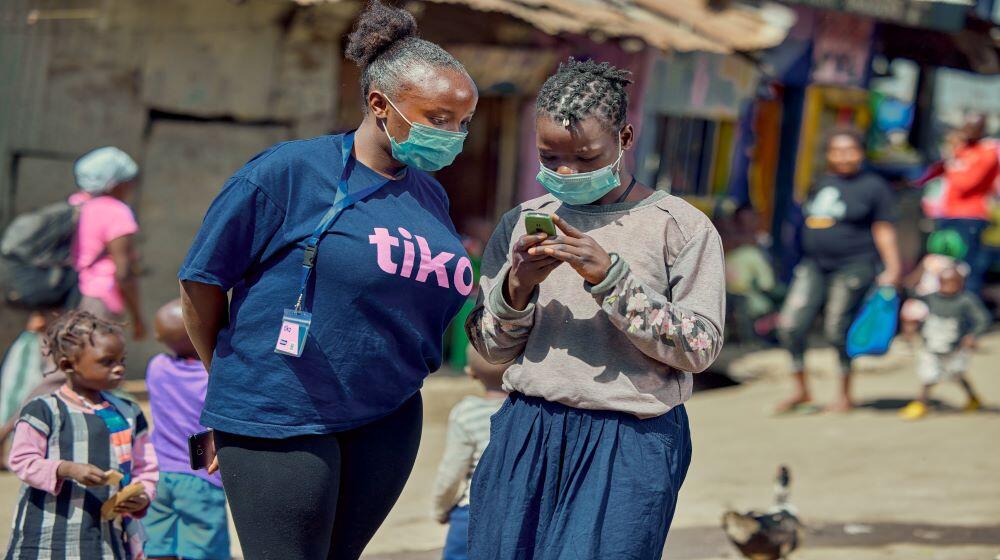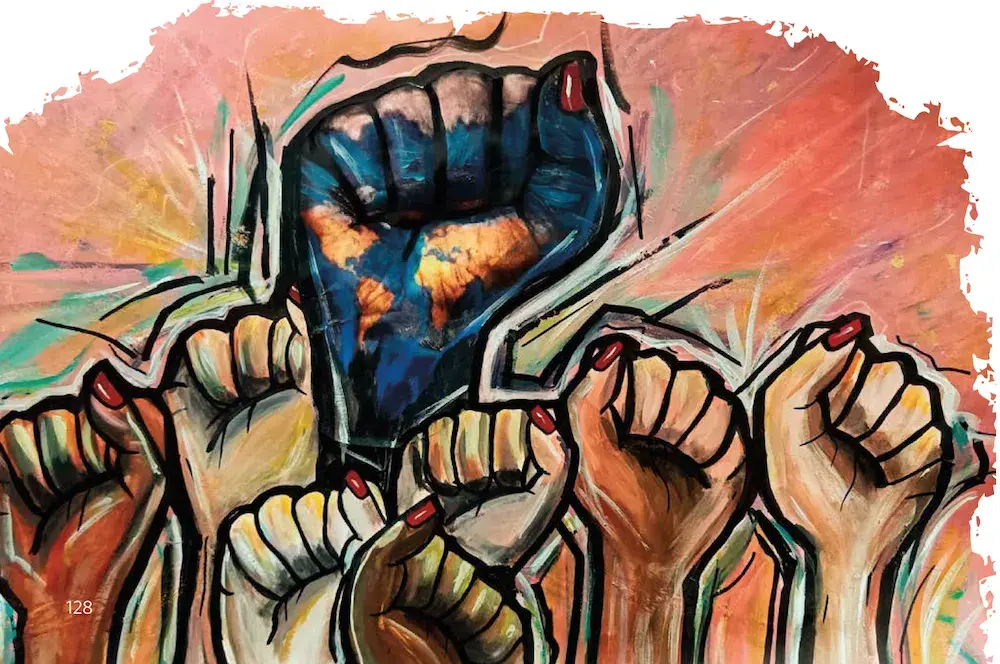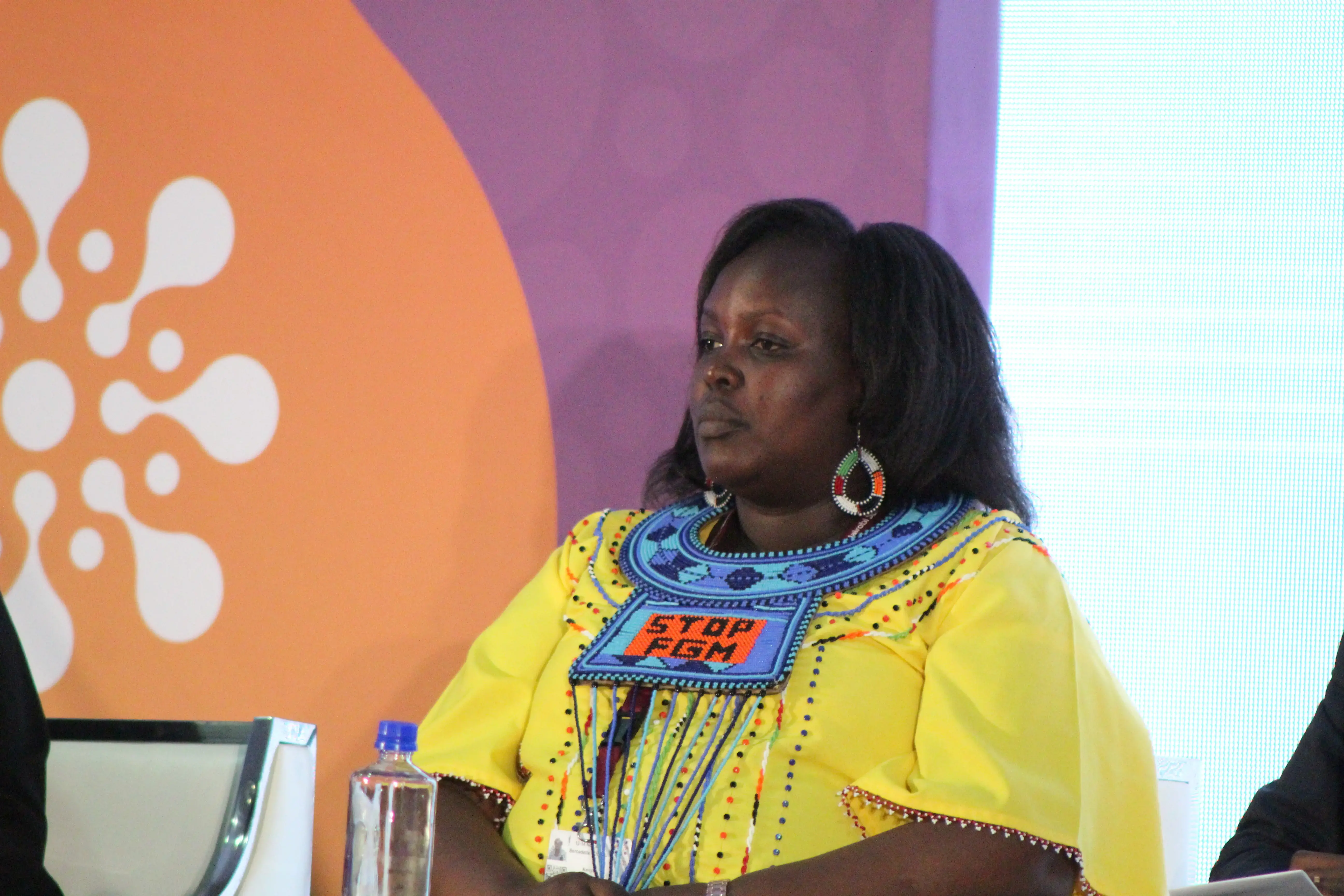With her mobile phone in hand, 24-year-old community health volunteer Phylis Mwangi sets out every morning, visiting neighboring homes in Mabatini, an area of the expansive Mathare informal settlement in Nairobi. She spends the day speaking to teenage girls, many of whom are first-time young mothers, introducing them to Tiko, a digital platform on her phone that connects girls between the ages of 15-19 with free sexual and reproductive health supplies and services.
“I had my first baby at 19, and I remember how difficult it was, having barely completed my high school education, “ she says. “I want to help girls in my neighborhood to make better choices and build good futures.”
Growing up in the vast Mathare informal settlement in Nairobi comes with many challenges. “Due to high poverty levels, girls face difficulties in accessing basic needs such as food, sanitary towels, and education, and many are at risk of sexual exploitation and abuse,” says Rosalia Makau, CEO of Community Implementing Initiative, an organization working to empower young women and girls in Nairobi’s slums.
Girls at risk
Poverty, gender inequalities, and limited access to youth-friendly sexual and reproductive health information and services expose girls to multiple vulnerabilities that severely impact their health and well-being. A recent report by UNAIDS shows that adolescent girls and young women in sub-Saharan Africa are three times more likely to acquire HIV than adolescent boys and young men.
In Kenya, an estimated 330,000 adolescent girls become pregnant each year, a majority of whom come from low-income settings such as Mathare. Moreso, 42% of new adult HIV infections in the country occur among young people between the ages of 15 - 24.
Investing in girls’ future
The Tiko platform helps eliminate financial barriers that prevent girls from accessing life-saving sexual and reproductive health and HIV services. Girls can enroll onto the platform by downloading the app, sending a whatsapp or text message, or through a membership card provided by mobilisers such as Phyllis. Once enrolled, they are connected to healthcare providers, retailers, and community organizations that form part of an ecosystem working to improve access to services including contraceptives, ante-natal care, and HIV testing and counseling and testing.
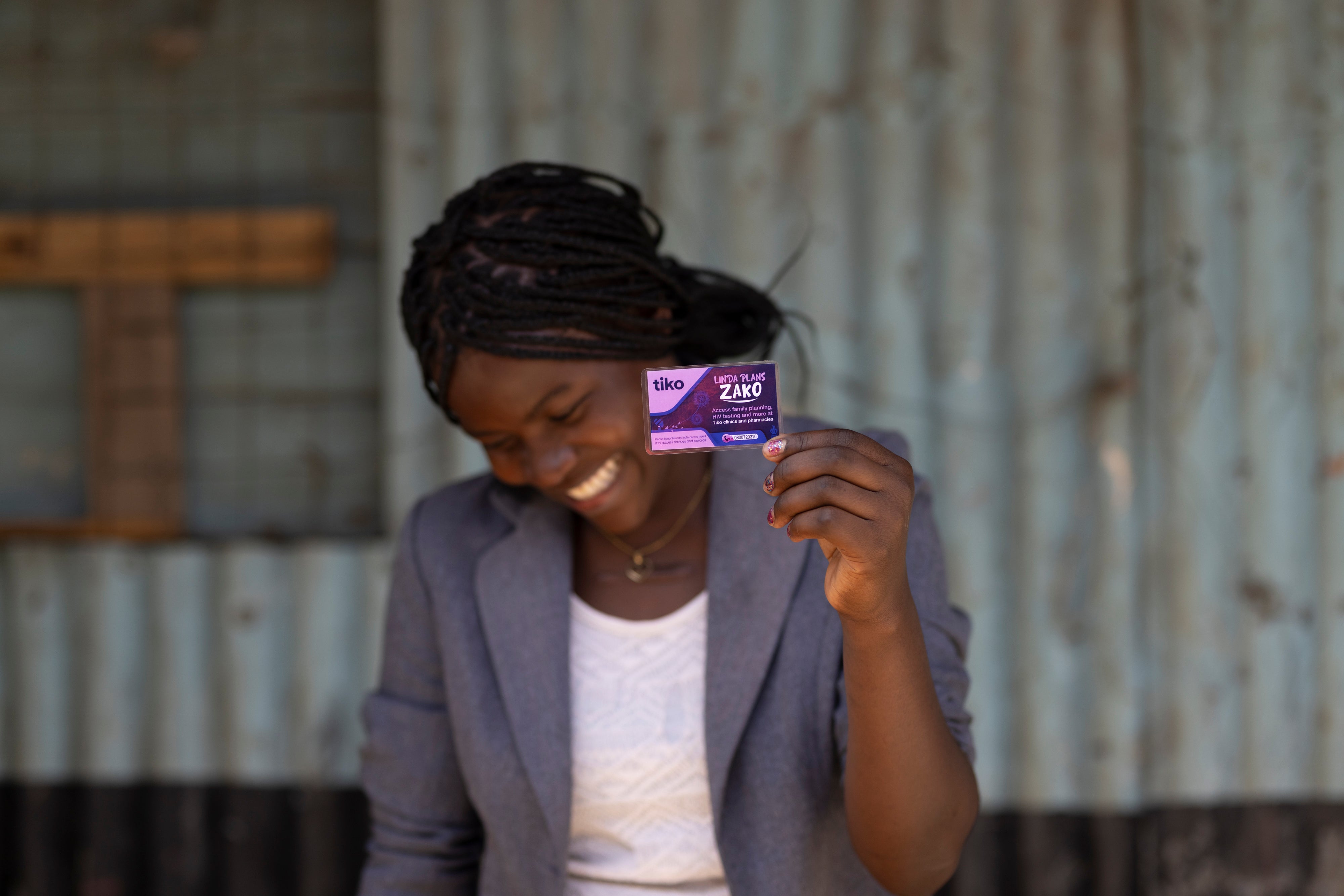
platform for access to free sexual and reproductive health services.
UNFPA is amongst partners championing the world’s first adolescent sexual and reproductive health development impact bond (DIB), whose goal is to finance the scale-up of access to SRH services and products through the Tiko Platform.
The three-year programme aims to build on work done during the first phase of the bond, which was piloted in Kenya by the Children’s Investment Fund Foundation (CIFF), Foreign, Commonwealth & Development Office (FCDO) and Triggerise, between 2020-2022. The first phase succeeded in expanding the availability and uptake of sexual and reproductive health services among adolescents in Kenya, with 362,000 girls being reached with services.
The second phase aims to reach 500,000 adolescent girls while equipping 300 public health facilities to provide quality adolescent and youth-friendly services. “The development impact bond is an outcome-based funding mechanism that will not only provide the investments needed to increase access for adolescent girls and young women living in low resource environments such as Mathare but also ensure that services offered are of quality, and meet the needs of the young people,” says UNFPA representative Anders Thomsen.
Girls who access services using the Tiko platform can rate the quality of service and give feedback on their experience. In return, they unlock rewards in the form of Tiko points that can be redeemed at local shops in exchange for other goods. The platform also generates real-time data that helps service providers, investors, and outcome funders to keep track of achievements. As funding is tied to the outcomes, service providers have an incentive to provide quality services and achieve the desired results.
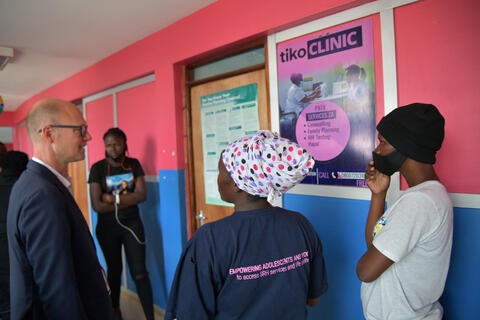
Mathare Informal Settlement.
Working alongside 49 other volunteers, Phyllis has helped to enroll thousands of adolescent girls in Mathare, who are now connected to health facilities and pharmacies through their phones.
“Our health facility has seen a significant increase in the number of girls seeking services at our reproductive health clinic, ” says Shining Hope for Communities (SHOFCO) Mathare Clinic Director Ms. Emma Ingaiza.
“Using data from the TIKO platform, we are able to forecast our reproductive health commodity needs and to identify negative trends which are then addressed through outreach and in-reach programs to reach more girls and build positive attitudes and behaviors in regards to their sexual and reproductive health,” she says
The Adolescent Sexual and Reproductive Health Development Impact Bond will be rolled out by a Joint United Nations team in Kenya comprising of the UN Resident Coordinator’s Office, SDG Partnership Platform, UNFPA, WHO, UNAIDS, and partners including Triggerise, CIFF, and the Government of Kenya through the Ministry of Health, Council of Governors, and participating county governments of Nairobi, Mombasa, Kisumu, Migori, Homabay, Kisii, Nyamira, Bungoma, Busia and Kakamega.

